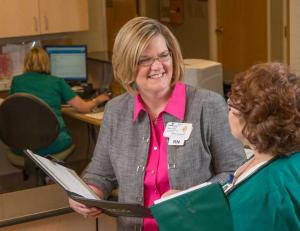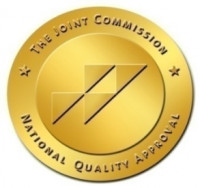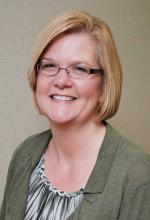The Senior Fracture Program
 According to data from the Agency for Healthcare Research and Quality, more than half of the patients receiving inpatient care for fractures and almost 90% of hip fracture patients are seniors. Research shows that senior patients who are treated quickly after a fracture have better outcomes, and getting them into surgery faster (within 48 hours or less) results in a shorter length of stay, a faster recovery, fewer complications and an increased likelihood to return to pre-injury levels of activity.
According to data from the Agency for Healthcare Research and Quality, more than half of the patients receiving inpatient care for fractures and almost 90% of hip fracture patients are seniors. Research shows that senior patients who are treated quickly after a fracture have better outcomes, and getting them into surgery faster (within 48 hours or less) results in a shorter length of stay, a faster recovery, fewer complications and an increased likelihood to return to pre-injury levels of activity.
 The Cabell Huntington Hospital Senior Fracture Program, which was created in response to these findings, helps senior patients achieve the best possible outcomes and curb the negative effects of bone fractures. The program has been recognized nationally for healthcare quality and was named a Disease-Specific Certified Program for Hip Fractures by the Joint Commission. Key features of the Senior Fracture Program include:
The Cabell Huntington Hospital Senior Fracture Program, which was created in response to these findings, helps senior patients achieve the best possible outcomes and curb the negative effects of bone fractures. The program has been recognized nationally for healthcare quality and was named a Disease-Specific Certified Program for Hip Fractures by the Joint Commission. Key features of the Senior Fracture Program include:
- Rapid assessment and evaluation in Cabell Huntington Hospital's Emergency Department
- Dedicated operating rooms equipped for optimal surgeries in less than 24 hours, using the newest techniques available
- Early post-operative mobilization and initiation of rehabilitation
- Co-management of patients by doctors and orthopedic surgeons to minimize complications and manage chronic medical issues
- Specialized hip fracture nursing care plans to minimize pressure ulcers and infections
- Close monitoring and treatment for delirium, a common complication after hip fracture surgery in seniors
- An emphasis on effective pain management
- Improved communication with patients and family and the interdisciplinary team of physicians, nurses and other healthcare professionals with expertise in the care of seniors
- Screening for osteoporosis and follow-up to prevent another fracture
Senior Fracture Program Leadership

Rebecca Edwards, RN, BSN, CNRN, Program Coordinator
The Senior Fracture Program Coordinator is Rebecca Edwards, RN, BSN, CNRN, who joined the Cabell Huntington Hospital staff in 1990. She earned her Bachelor of Science degree in Nursing from The Ohio State University School of Nursing and worked on the Neuroscience Unit for 21 years as both a staff nurse and Clinical Coordinator before joining the Senior Services team. She is highly focused on quality of care improvements based on the most current evidenced based practices, and she enjoys caring for the senior population.
For more information, please contact Becky Edwards at 304.399.1897 or Becky.Edwards@chhi.org.
Bone Health & Your Health
The most common bone disease is osteoporosis, which causes your bones to lose minerals, become fragile and break easily. Osteoporosis weakens your bones much like termites can weaken a house. Your body’s frame becomes fragile, and injuries become more traumatic. Weak bones can break easily. This can be fatal.
If you do not have a healthy diet and engage in the right kinds of physical activity, your bones begin to weaken. Many of us are making lifestyle choices that will weaken our bones, or we may already have weak bones and don’t know it. Each year 1.5 million older people in this country suffer fractures because their bones have become weak. For seniors, weak bones can be deadly.
If you are older and break a hip, you are about four times more likely to die within three months. If you survive, the injury often causes your health to spiral downward. One in five people with a hip fracture ends up in a nursing home within a year. Many others become isolated, depressed or frightened to engage in normal activities because they fear they will fall again.
Education
Learn more about:
